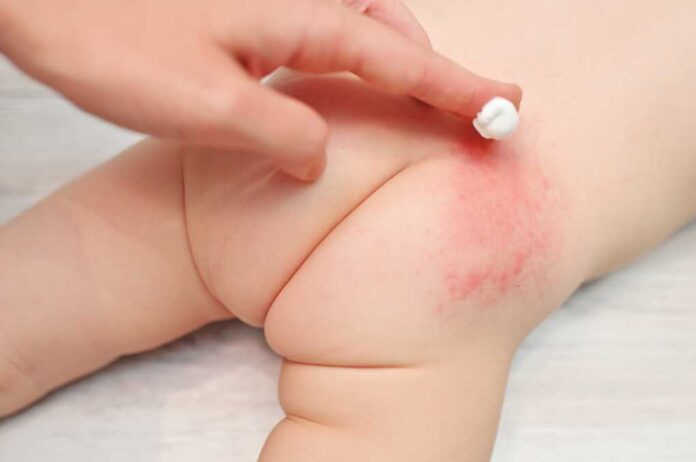
The latest TikTok skincare trend has people applying diaper cream to their faces, but dermatologists warn this viral “face basting” hack may cause more harm than good for certain skin types.
At a Glance
- “Face basting” with diaper cream containing zinc oxide has gone viral as a treatment for dry, irritated skin
- Dermatologists caution that ingredients like lanolin and mineral oil in diaper creams can cause facial irritation and clogged pores
- People with oily or acne-prone skin should avoid this trend as it may worsen breakouts
- Experts recommend using products specifically formulated for facial skin instead
- Always patch test new products and consult a dermatologist before trying social media skincare hacks
The Rise of “Face Basting”
Social media platforms, particularly TikTok, have become breeding grounds for beauty hacks and skincare trends that promise quick fixes for common concerns. Among the latest viral sensations is “face basting,” a technique popularized by dermatologist Dr. Shereene Idriss that involves applying diaper rash cream to the face. The trend emerged as an alternative to “face slugging,” which uses petroleum-based products to seal in moisture. Face basting proponents claim it helps heal dry, irritated skin and reduces redness and inflammation.
The trend has gained traction because diaper creams typically contain zinc oxide, known for its anti-inflammatory, antibacterial, and skin-protective properties. These qualities make it effective for treating diaper rash in babies—and potentially beneficial for adult facial skin concerns. Additionally, the accessibility and affordability of diaper creams compared to specialized skincare products have contributed to the trend’s popularity among those seeking budget-friendly skincare solutions.
Potential Benefits and Risks
The primary ingredient driving interest in diaper cream for facial use is zinc oxide. This mineral compound creates a protective barrier on the skin, helping to reduce inflammation and promote healing. For individuals with extremely dry or irritated skin, this barrier function can provide temporary relief. Some users report improvements in facial redness, minor irritations, and even claim it helps with occasional breakouts due to zinc’s mild antibacterial properties.
However, dermatologists express significant concerns about this trend. Many diaper creams contain ingredients not formulated for facial skin, such as lanolin, mineral oil, and petroleum jelly, which can clog pores and trigger acne breakouts. The occlusive nature of these products, while beneficial for protecting baby bottoms from moisture, may disrupt the delicate balance of facial skin. People with oily or acne-prone skin are particularly at risk of experiencing worsened conditions if they follow this trend without considering their skin type.
Expert Recommendations
Dermatologists generally advise against using products not specifically formulated for facial skin. While diaper cream might provide short-term relief for extremely dry or irritated skin, it’s not an ideal long-term solution for facial skincare concerns. If you’re determined to try this trend, experts recommend using it sparingly as a spot treatment rather than applying it all over your face, and avoiding sensitive areas like the eyes and mouth.
For those seeking safer alternatives, dermatologists recommend facial moisturizers containing zinc oxide if you want similar benefits without the risks. Products like Vanicream Daily Facial Moisturizer, CeraVe PM Facial Moisturizing Lotion, and Kiehl’s Ultra Facial Cream with Squalane offer hydration without potentially problematic ingredients. For acne concerns, products specifically formulated to treat breakouts, such as Neutrogena On-the-Spot Acne Treatment or Differin Gel, are more appropriate than diaper cream.
Safe Approach to Skincare Trends
If you’re still curious about trying face basting or other viral skincare hacks, dermatologists recommend several precautions. Always perform a patch test by applying a small amount of the product on your inner arm or behind your ear for 24-48 hours to check for allergic reactions. People with allergies to zinc, lanolin, mineral oil, parabens, wax, or petroleum jelly should avoid diaper creams entirely. Use the product sparingly and discontinue use immediately if you experience any irritation, redness, or breakouts.
The face basting trend highlights a broader concern with social media-driven skincare advice: what works for one person may not work for another. Skin types, sensitivities, and concerns vary widely among individuals. While the accessibility of these platforms has democratized skincare information, it’s important to approach viral trends with caution and prioritize evidence-based practices recommended by dermatologists. Consulting with a skincare professional before trying new treatments can help you develop a regimen that addresses your specific needs without risking long-term damage to your skin.


















